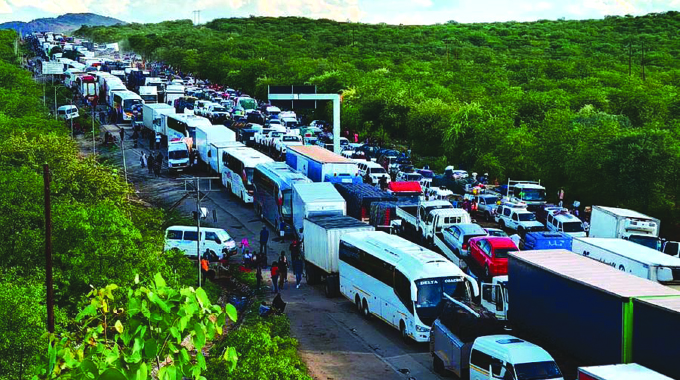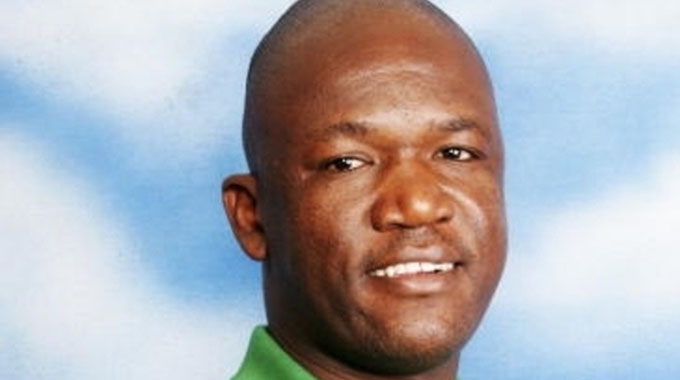Corruption culture hinders Beitbridge progress: Fesarta

A culture of corruption, entrenched over decades between transporters and border personnel greasing the wheels of cross-border commerce through back-handers, appears to impede change at Africa’s most notoriously congested choke-point – Beitbridge.
For more than two months now the transit has been bottlenecked for kilometres south of the border as northbound trucks try to squeeze into Zimbabwe.
Zimborders Consortium, the concession company tasked with running facilities north of the crossing following an expensive – some say cost-inflated – revamp of facilities, has been regularly accused by transporters of causing a queue that is almost impossible to deal with.
Generally speaking, hauliers allege, Zimborders wasn’t ready when it went live with its systems last week Monday.
Problems around the processing of payment persist, they say, holding up transporters who arrive prepared yet are snagged by the teething issues of a new system.
But this was not the case, said Mike Fitzmaurice of the Federation of East and Southern African Road Transport Associations.
The organisation’s chief director, who is currently at the border trying to speed up the queue, said there were still some issues regarding non-compliance by transporters.
“It’s the biggest problem at the moment.
“About 70% of transporters arriving at the border do not have their paperwork in order and are just parking at the border, waiting.”
Efforts are currently under way to separate non-compliant transporters from those whose drivers have paperwork that’s in order.
Errant drivers and their trucks are moved to an export yard staging area, Fitzmaurice says, until everything is in order for them to proceed through the border.
“The problem is there is an inbred culture at the border post that has been going on for decades, where you have been able to cross with unprocessed documents and a ‘facilitation fee’ that would probably get you anywhere you wanted to go.”
Because the new system was automated and based on incorruptible compliance, it had come as a culture shock to unscrupulous transporters who thought they could arrive at the border and pay their way past any snags, Fitzmaurice explained.
“Everyone is blaming Zimborders at the moment, but it’s not them. It’s also not Korridor” – the entity entrusted with payment facilitation. Their payment systems are the only such systems that are working at the moment. Complaints that it’s not working is a lot of nonsense. Drivers are using it as an excuse to keep their bosses happy by saying it’s not their problem.”
Adding to the frustration of unplugging the clogged-up border, Fitzmaurice said, was getting agents and runners to work after hours, ramping up night-time throughput which is far below where it should be.
Zim drivers, preferring to sleep at the border and continue with their journeys in the morning, thereby optimising the three-day pass they have to pass through their own country, was also not helping, Fitzmaurice said.
And yet, despite everything, the rate of pushing volume through the border has increased, with the queue this morning down to one lane from Musina to the weighbridge area immediately south of the border.
From there, Fitzmaurice said, the queue was two lanes abreast, not great but a far cry from recent scenes of truck queues up to six lines long across the N1.
To escape such inhumane waiting times, transporters say, they are prepared to pay what Zimborders charges to use its facilities.
It’s not good enough though, Fitzmaurice argues. They must adapt to the new system, arrive with all paperwork in order, and not think they can bribe their way through if they arrive at the border unprepared.
So badly blocked is the border that transporters are calling for extreme measures, such as opening it to let trucks pass through with minimum processing checks.
As for an alternative way around Beitbridge via the Groblersbrug-Martins Drift crossing through Botswana and north into Zimbabwe west of Plumtree, Fitzmaurice said it would merely be a case of shifting volume elsewhere.
Groblersbrug was already seeing an increase in traffic, he said. “While it’s nowhere near what we’re seeing at Beitbridge, it will only get worse if trucks heading into Zimbabwe go that way around.”
Not for the first time has it been said that the single-lane bridge west of Lephalale is wholly inadequate as a cross-border alternative – both for volumes diverted away from Beitbridge and for traffic heading towards the Kazungula Bridge across the Zambezi between Botswana and Zambia. – Freight News









Comments